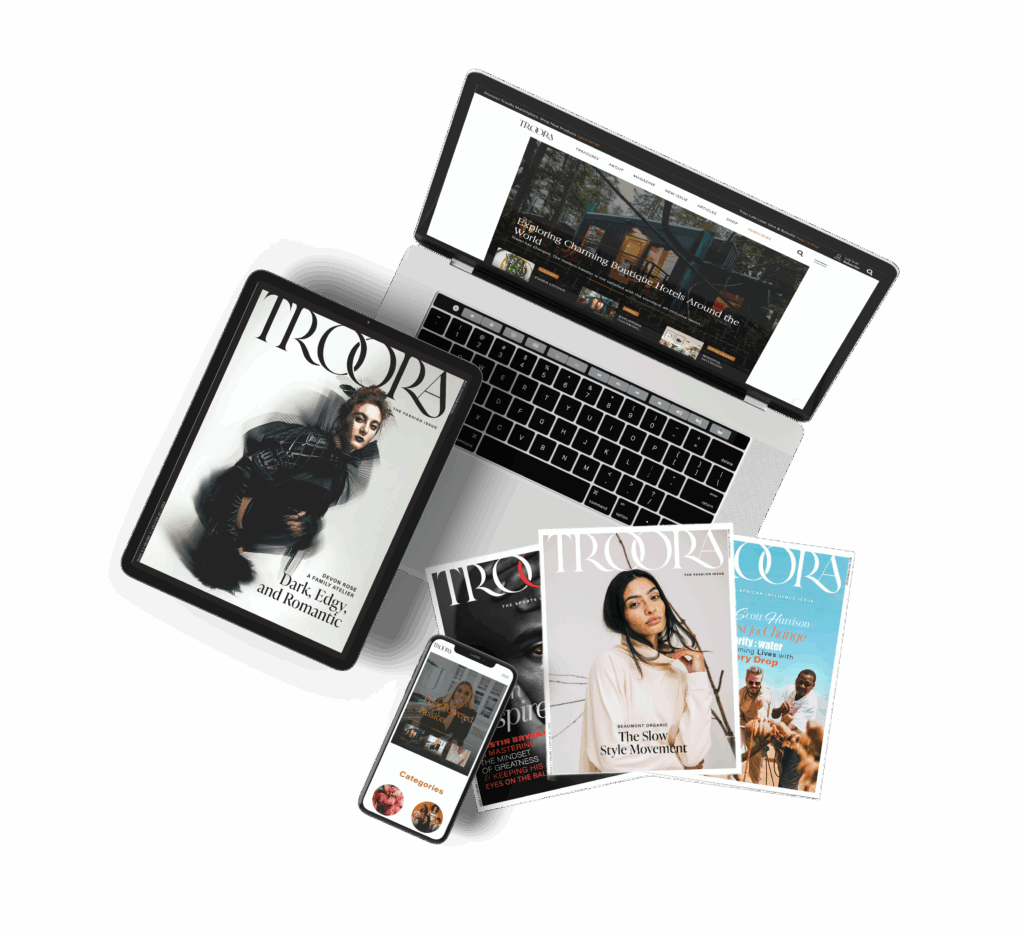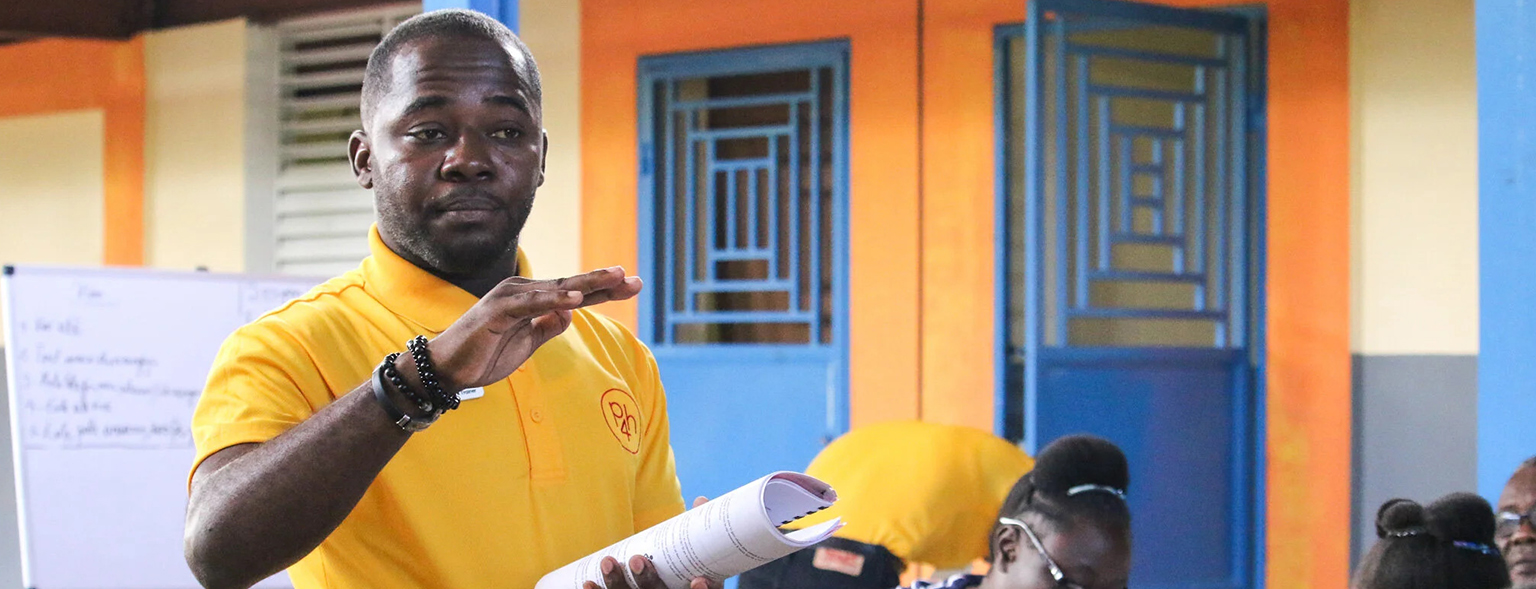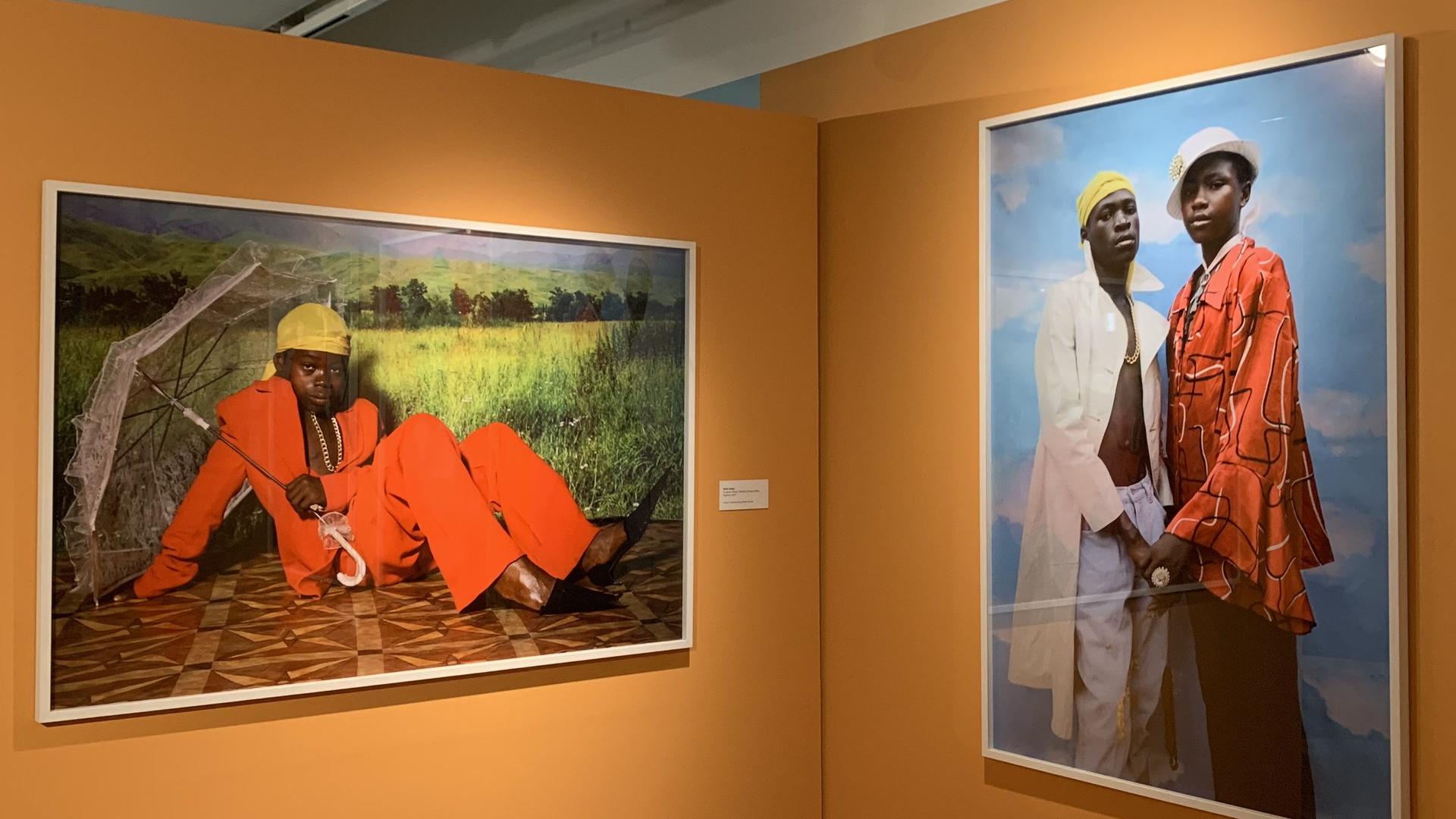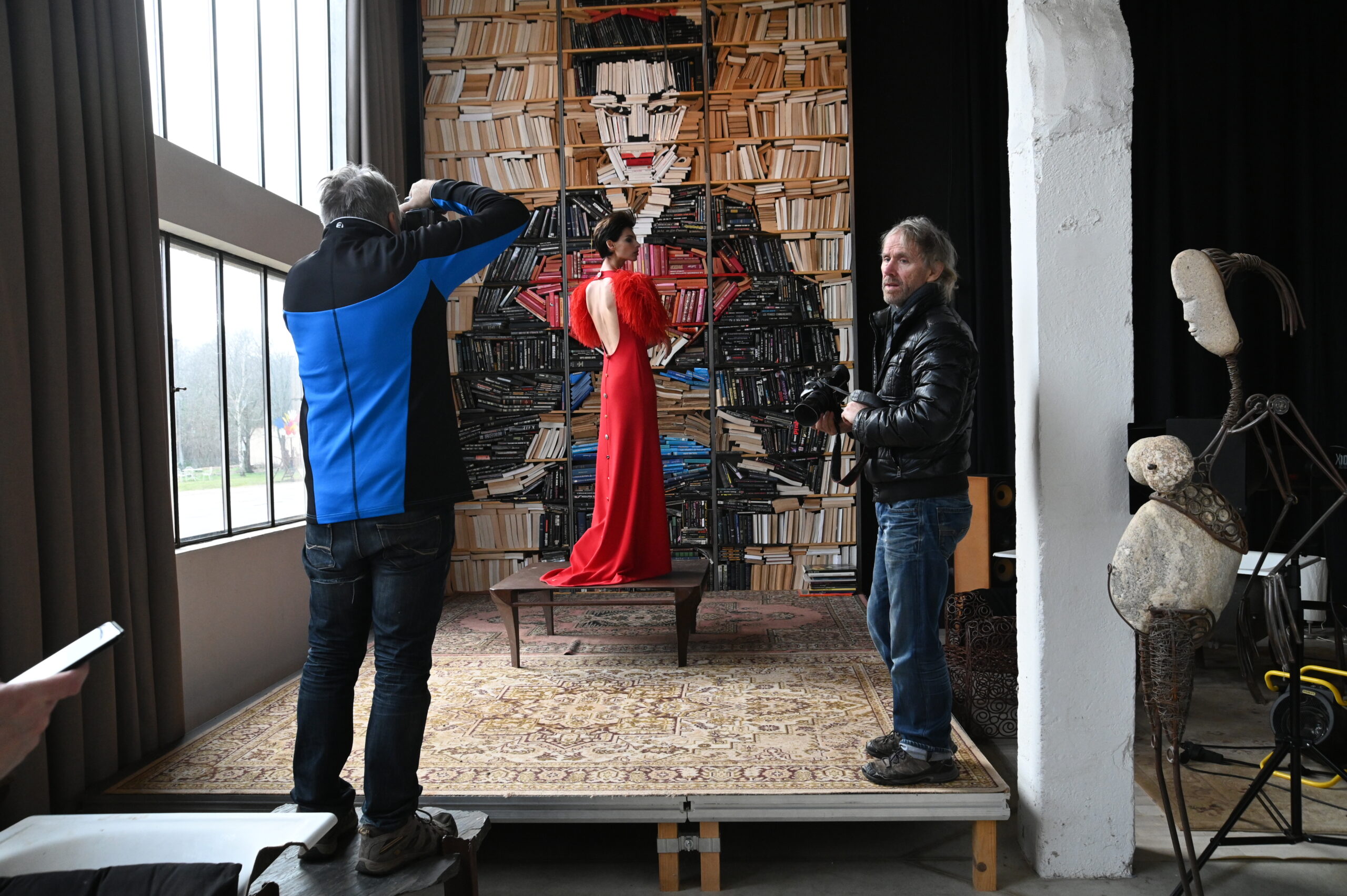Before the read
It describes well-meaning efforts that often hurt more than they help by ignoring local knowledge and solutions.
By focusing on empowering local teachers rather than flooding communities with outside donations.
Because they build long-term capacity within communities instead of creating dependency.
The End of the White Savior Complex? This Haitian NGO Offers a Better Way
Despite its good intentions, traditional international aid has been criticized for offering unsustainable solutions and, ultimately, doing more harm than good in local communities. In Haiti, P4H is pioneering a different approach with the help of local educators.
Cliffs line the banks of the river in Accra, Ghana, 65-foot-high towers made not of rock nor earth but discarded clothes. Cows climb on these strange hills, grazing on polyester fibers in the absence of grass. This landfill keeps growing, as fifteen million used garments pour into the city every week from North America, Europe, and Australia, charitable donations that are ill-adapted to the local climate, falling apart on arrival, or simply too numerous to be needed. In Ghana, they call them obroni wawu, or dead White man’s clothes.
The arrival of barrels of old clothes is a situation echoed throughout lower-income countries. These unwanted donations have become a visible symbol of a larger issue: the fact that international aid is often misplaced, mismanaged, and ultimately ineffective.

Take Haiti. Dubbed “the Republic of NGOs,” the country has one of the highest numbers of non-governmental organizations per capita in the world. Yet despite the billions of dollars in aid that have flowed into the country, Haiti remains the most impoverished nation in the Western Hemisphere. In Port-au-Prince and other urban centers, streets are littered with discarded relief supplies—expired food rations, broken medical equipment, and, yes, mountains of donated clothes. What was meant to be an act of generosity often becomes an ecological and economic burden.
A Different Kind of Aid
Amidst this flawed system, one NGO is pioneering a different approach. Instead of handouts, P4H focuses on education—an investment that has the potential to transform Haiti from within. “We are taking part in another Haitian Revolution,” Dr. Bertrhude Albert, co-founder of P4H Global, told UNESCO in 2022. “We will be victorious, not with guns and machetes in our hands, but rather with books and pens.” Albert, alongside co-founder Dr. Priscilla Zelaya, launched P4H Global in 2011 with the project “Training Teachers to Transform Haiti.” The goal is to equip Haitian educators with the skills needed to foster critical thinking, collaboration, and creativity in the classroom. The program is structured around a three-year cycle of diagnostics, training, coaching, and classroom observations.
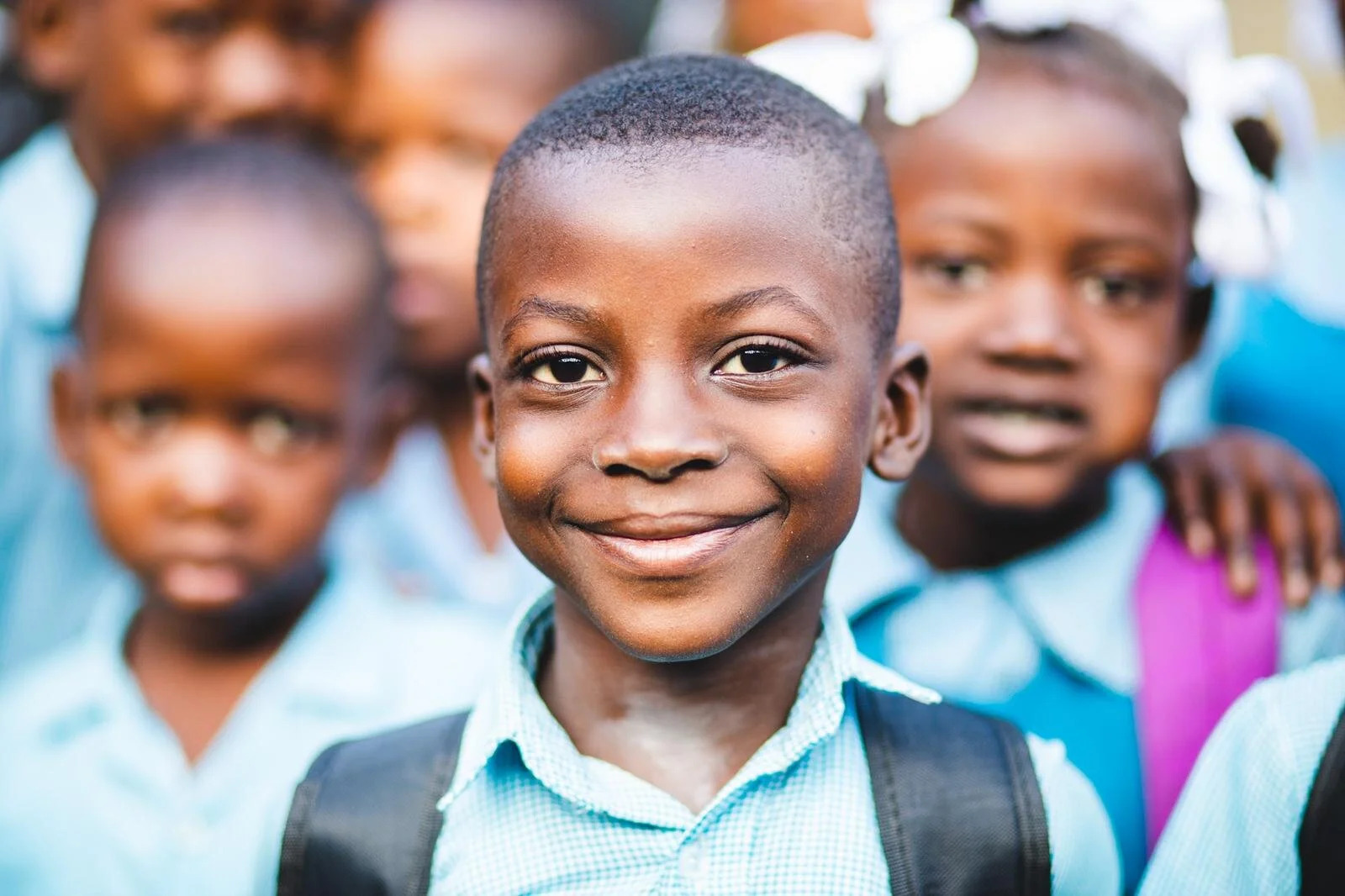
For too long, education in Haiti relied on rote memorization and corporal punishment. P4H is working to change that by empowering teachers with modern, student-centered teaching methods. “P4H Global is a grassroots organization that was created for Haitians by Haitians,” said Albert. “We train teachers because they are the heroes of Haiti. We are confident that as they receive effective training and support, Haitian teachers will raise up leaders that will transform the country.”
The Problem with International Aid
P4H’s mission stands in stark contrast to traditional aid, which is often imposed on communities without their input.
Take, for instance, the case of Renee Bach, an American missionary who traveled to Uganda at the age of eighteen and founded the nonprofit Serving His Children (SHC). Despite having no medical training, Bach reportedly performed medical procedures on malnourished children. The results were disastrous—several children under SHC’s care died.
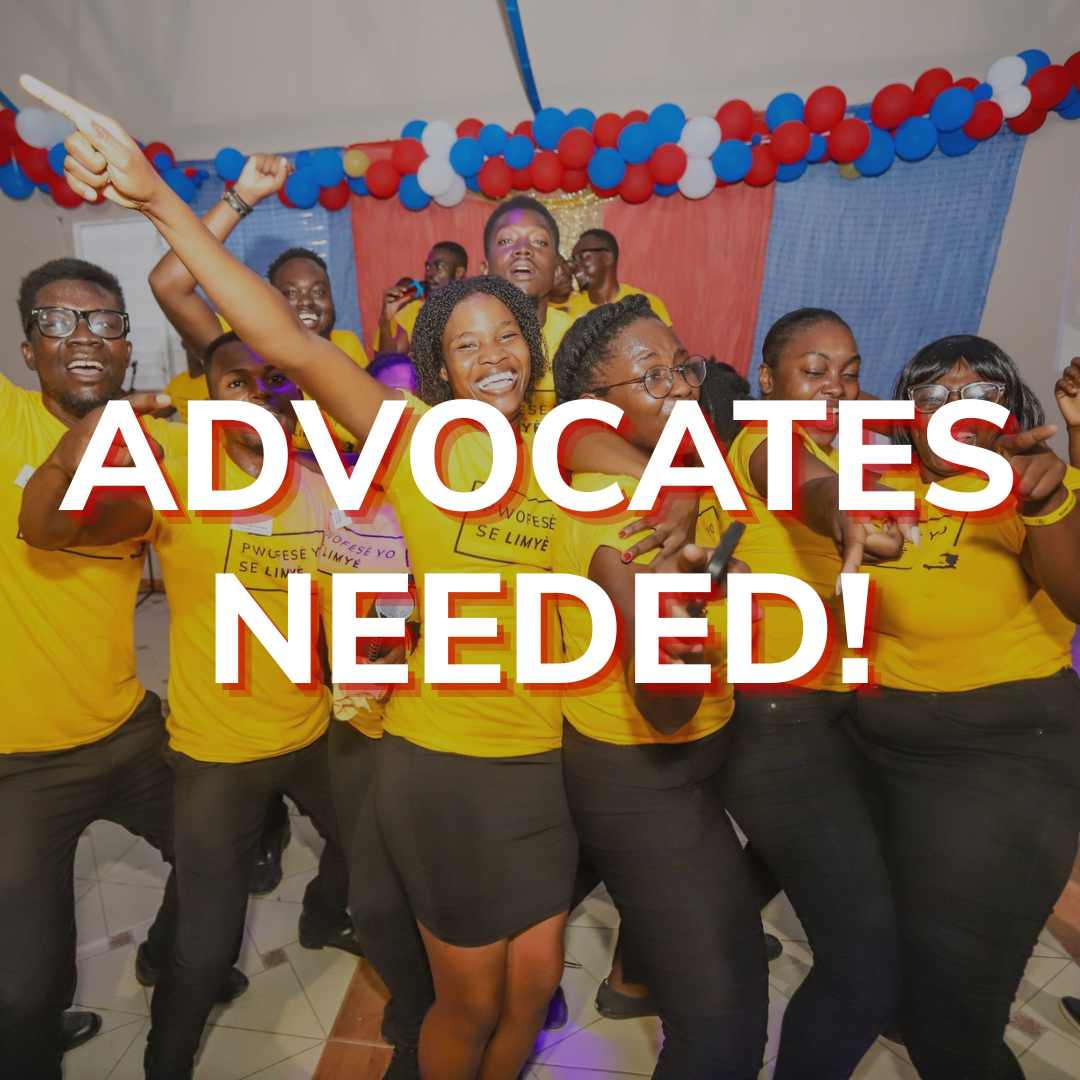
“A nobody from America or Europe can go to Africa and become a godlike savior,” writer Teju Cole wrote in The Atlantic. “It is a liberated space in which the usual rules do not apply.” Cole describes this as the “White Savior Industrial Complex.” The same Western powers that have contributed to the economic destruction of places like Haiti or Ghana often send aid as a way to ease their own guilt—without truly addressing the root causes of poverty.
Uganda-based activists Olivia Alaso and Kelsey Nielsen launched the No White Saviors campaign in response to cases like Bach’s. They argue that many aid initiatives are designed more to satisfy Western egos than to serve local communities.
The consequences of these misguided efforts can be severe. Aid initiatives that fail to engage with local communities can stifle economic growth, create dependence, and, in some cases, like that of Renee Bach, directly harm the populations they set out to help.
Learning from Mistakes
Founders Bertrhude Albert and Priscilla Zelaya understand this problem firsthand. Before they created P4H Global, they too fell into the trap of misguided aid.
In 2011, the two organized a mission trip to Cap-Haïtien, bringing along nineteen University of Florida students. They spent months collecting over one thousand pounds of shoes, clothes, and food, believing that these donations would make a difference. But after distributing the supplies, local business owners told them a harsh truth: their efforts had harmed the community. The influx of free goods had put local merchants out of business for weeks. “We met tailors who lost jobs because of our work, vendors who lost customers. Who can really compete with free?” the founders said in a TED talk.
This realization was a turning point. Instead of dismissing the criticism, Albert and Zelaya chose to listen. They returned to the US and spent months researching sustainable development. Their conclusion: true aid should empower, not replace, local communities.
P4H’s Model for Sustainable Change
P4H’s work is built on the idea that the solution to poverty lies within local communities. Instead of flooding Haiti with outside donations, the organization focuses on equipping educators with the tools they need to create lasting change.
One of P4H’s key initiatives is promoting Haitian Creole as a language of instruction. For decades, French—spoken by only a fraction of Haitians—has been the dominant language in schools, leaving many students struggling to understand their lessons. “Training in Haitian Creole ensures that our participants truly understand the content we are sharing with them,” said Albert.
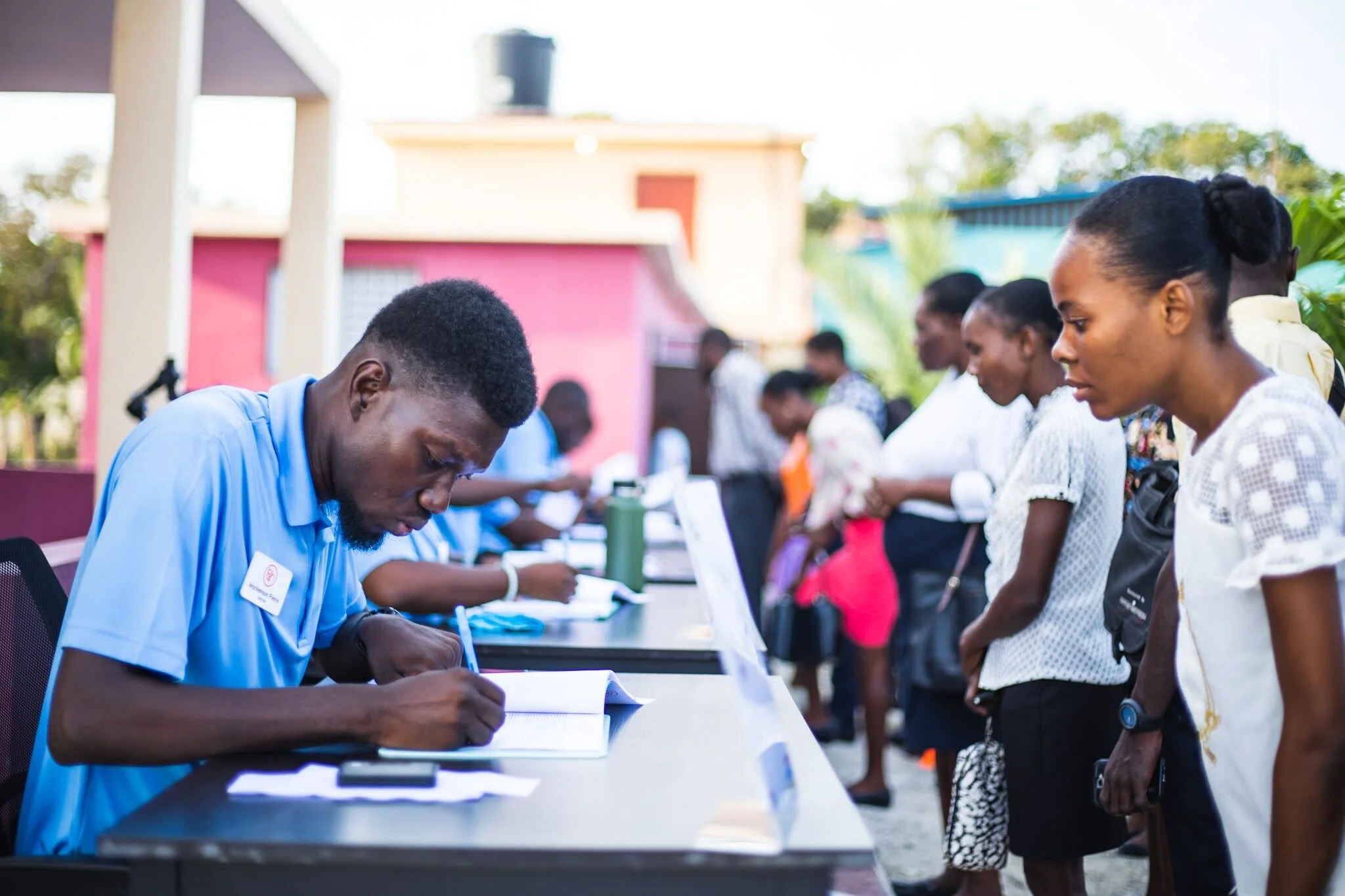
In addition to language reform, P4H prioritizes rural schools, where resources are even scarcer. Over 70 percent of their training programs take place in rural areas, and their online community, Kominote Pwofesè Ayisyen, connects over eleven thousand Haitian teachers, who share experiences and resources.
Their approach has not gone unnoticed. In 2022, P4H Global won the UNESCO-Hamdan Prize for Teacher Development. “The world is watching us,” Albert said. “UNESCO believes in us. Let’s make them all proud. Let’s transform our nation not only for the future generation but also for the world to see that Haiti’s circumstances don’t determine our potential.”
For too long, Haiti has stood as a graveyard of good intentions. But with initiatives like P4H, it has the potential to become something else entirely—a model for how international aid can be done right.
More by this author
The Wrap
- The White Savior complex highlights how aid can unintentionally harm communities when outside agendas override local needs.
- P4H Global offers a Haitian-led model that prioritizes teacher development and community empowerment.
- The organization emphasizes education as the most sustainable tool for breaking cycles of poverty.
- Training programs strengthen schools in rural areas while promoting Haitian Creole for more inclusive learning.
- By focusing on long-term growth, P4H avoids the pitfalls of donation-driven aid that damages local economies.
- Recognition from UNESCO underscores P4H’s role as a leader in reshaping the global conversation about aid.
- Haiti’s story through P4H demonstrates how true partnership and grassroots leadership can replace outdated patterns of foreign intervention.

























